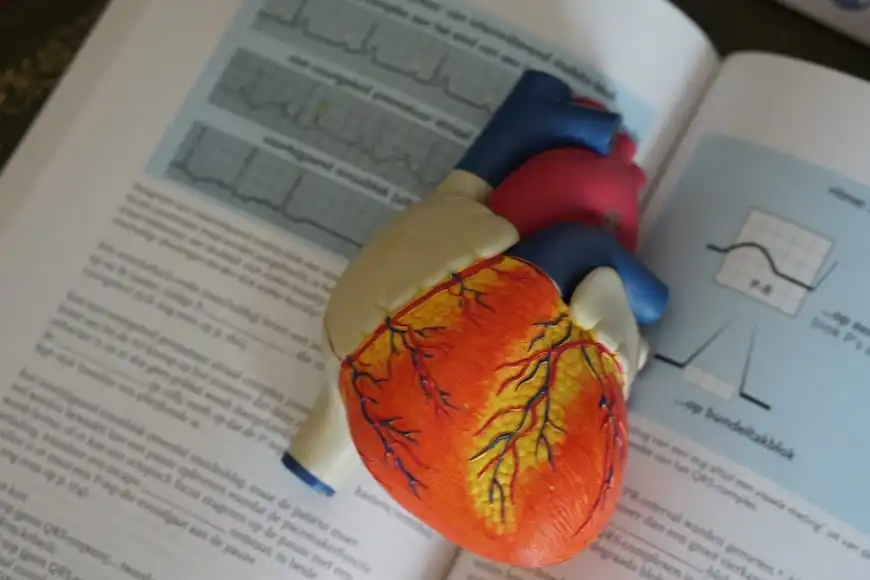Preventive Healthcare
What is Tachycardia? All You Need To Know
2919 Views
0

What is Tachycardia?
Tachycardia is a medical situation that arises when your heart rate crosses 100 beats in a minute. This condition may arise due to irregular heart rhythms.
A faster heart rate is not always a matter of concern. For example, your heart may beat faster because of rigorous exercise or if you are under stress.
Tachycardia by itself may not always lead to any complications or sometimes doesn’t show any symptoms. But if left untreated, it may result in the formation of blood clots, which in turn can cause serious health issues like stroke, heart failure, or cardiac arrest.
The treatment of tachycardia includes medications, cardioversion (a process that uses quick low-energy shocks to restore regular heart rhythm), and in severe cases, surgery.
Symptoms of Tachycardia
Although some patients may never display visible symptoms of tachycardia, others could experience mild or severe symptoms, including:
- Short breath
- Chest pain
- Dizziness
- Heart palpitations
- Lightheadedness
- Fainting
In some cases, tachycardia may be discovered when the patient gets a routine physical examination or heart tests done for other reasons.
Types of Tachycardia
There are different types of tachycardia. Among these, sinus tachycardia is a typical heart rate increase caused by stress or exercise. Often this type of condition is not serious.
Other types of tachycardia are named based on the part of the heart responsible for the increase in heart rate. These include:
- Atrial Fibrillation (A-fib): This is the most common condition in which electric signals in the upper heart chamber result in a fast, irregular heartbeat. Although it is temporary, some episodes may not end until treated properly.
- Atrial flutter: It is similar to that of A-fib, but in this, the heart rate is just faster than normal. Atrial flutter episodes may go away by themselves or require some treatment. Patients that have atrial flutter may also experience A-fib sometimes.
- Ventricular tachycardia: This type of tachycardia initiates from the lower heart chambers called ventricles. The rapid increase in heartbeat doesn’t allow ventricles to contract properly and thus results in a shortage of blood pumping in the body. If ventricular tachycardia episodes last for over a few seconds, they may be life-threatening.
- Supraventricular tachycardia (SVT): In supraventricular tachycardia, irregular heartbeat starts from above the ventricles. Such a situation results in palpitations which start and stop abruptly.
- Ventricular fibrillation: It results in sudden electric signals, which cause ventricles to quiver instead of regular contractions. Such a condition may even result in death if the heart rhythm doesn't regulate within minutes. Patients who experience ventricular fibrillation mostly have an underlying heart problem.
Causes of Tachycardia
Tachycardia is defined as an increase in heart rate; it could be the usual rise because of exercise or more serious issues such as the response to stress or arrhythmia.
The following are the main cause of tachycardia:
- Heavy alcohol consumption
- High caffeine consumption
- Fever
- Low or high blood pressure
- Electrolyte imbalance of minerals like calcium, potassium, magnesium, and sodium
- Side effects of medications
- Decrease in red blood cells
- Smoking
Diagnosis of Tachycardia
Usually, your doctor will do some physical examination and ask about your symptoms or medical history. Tests to diagnose tachycardia may include:
Electrocardiogram (ECG or EKG): This painless test determines the electrical activity of your heart. In ECG test, sensors are placed on your chest or sometimes on your arms and legs. Through ECG, the duration of each electrical phase is measured. Your doctor will check the signal pattern in your heart to know the type of tachycardia and its cause.
Holter monitor: Your doctor may suggest checking the heartbeat at home. A portable ECG will be attached to your chest, which will record your heartbeat during daily activities.
Event monitor: This is a portable device attached to the chest which is used to record your heart's electrical activity when you display symptoms of tachycardia. It records the same information as an echocardiogram but for an extended period of time and can directly transmit the recorded information to your healthcare provider.
Echocardiogram: They are also known as cardio ultrasounds as they use ultrasound to examine the heart. This test is used to know the problem related to heart valves, blood flow, and heart muscles.
Chest X-ray: This X-ray is used to identify heart and lungs condition.
Cardiac magnetic resonance imaging (MRI): Doctors can get a still or moving blood flow picture of the heart through cardiac MRI. This test is usually performed to know the cause of ventricular fibrillation or ventricular tachycardia.
Treatment of Tachycardia
Tachycardia treatment measures help slow down the rapid heartbeat and prevent its future episodes.
If any other condition is causing tachycardia, then treating the underlying condition can reduce the fast heartbeat episodes.
Ways to slow down the fast heartbeat:
- Vagal manoeuvres: These involve coughing and bearing down as if passing a bowel and putting an icepack on the face. Your doctor will advise you to do such actions during the episode of a fast heartbeat. Such actions impact the vagus nerve and thereby control the heartbeat.
- Medications: If the Vagal manoeuvres don’t work, your doctor will prescribe medications to control the heartbeat.
- Cardioversion: In this treatment, electric shocks are given to the heart to restore the normal heartbeat. Such treatment is used in case of emergency or when the vagal manoeuvres or medications don’t work.
Book ECG Test at Home
To Sum Up
Tachycardia is not always a serious condition, but it can cause other major issues, which is why you need to seek medical advice if you experience any of the above-mentioned symptoms. Sinus tachycardia which is the heart's normal response to stress, usually goes away by itself. But other types of tachycardia may need medical intervention to prevent reoccurrence of the symptoms.
Diagnosing the cause of tachycardia should always be done at a reliable diagnostic centre, like Metropolis Labs. They are known for providing accurate results and timely reports. Check out their list of services today.























 WhatsApp
WhatsApp
